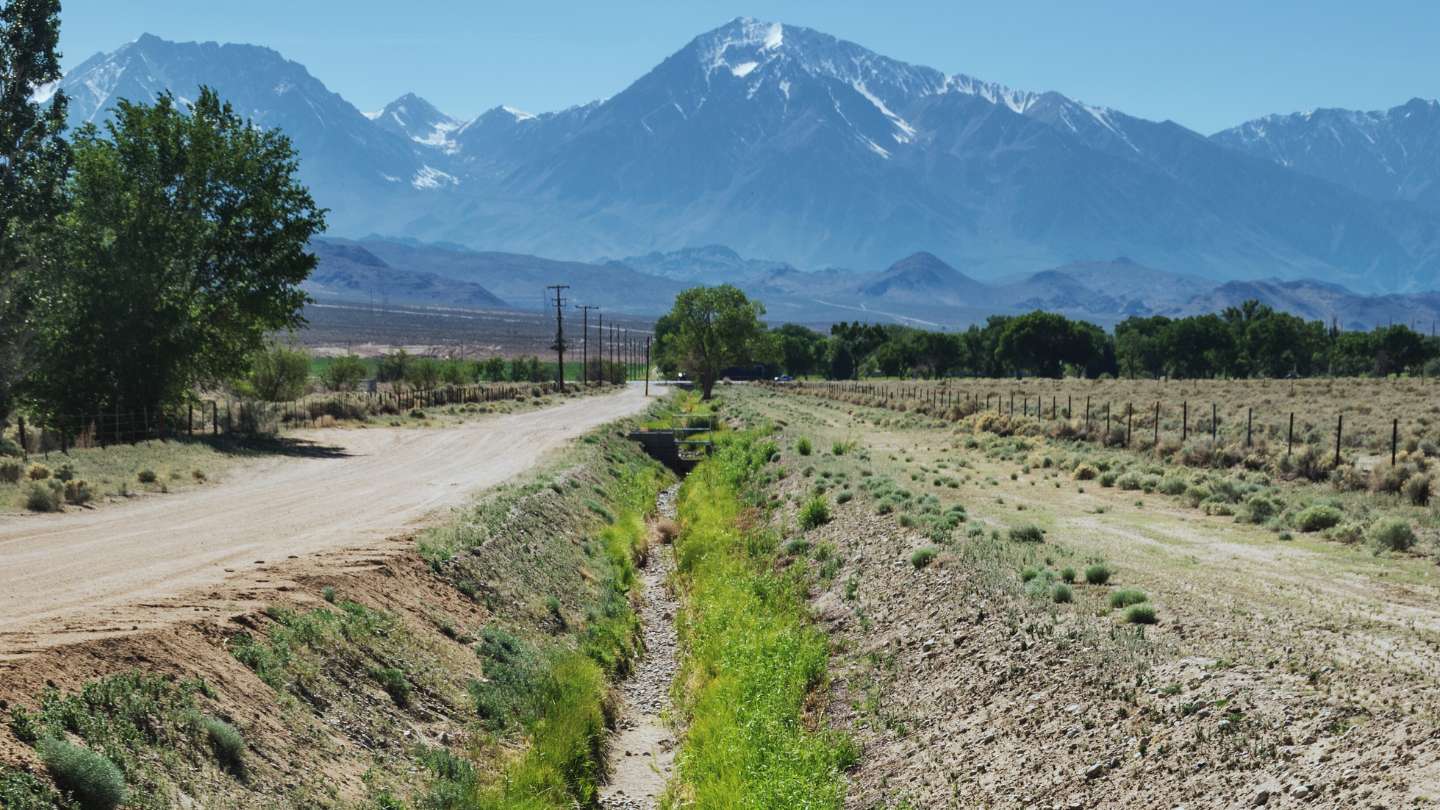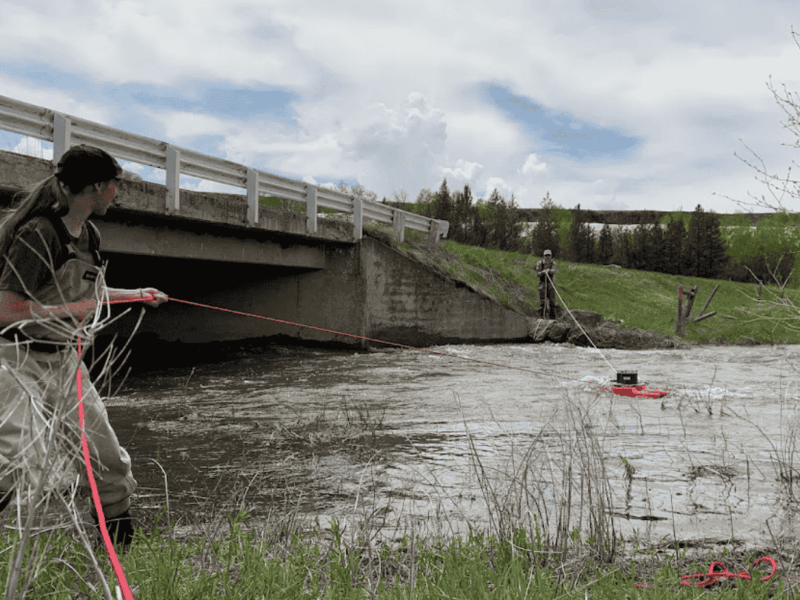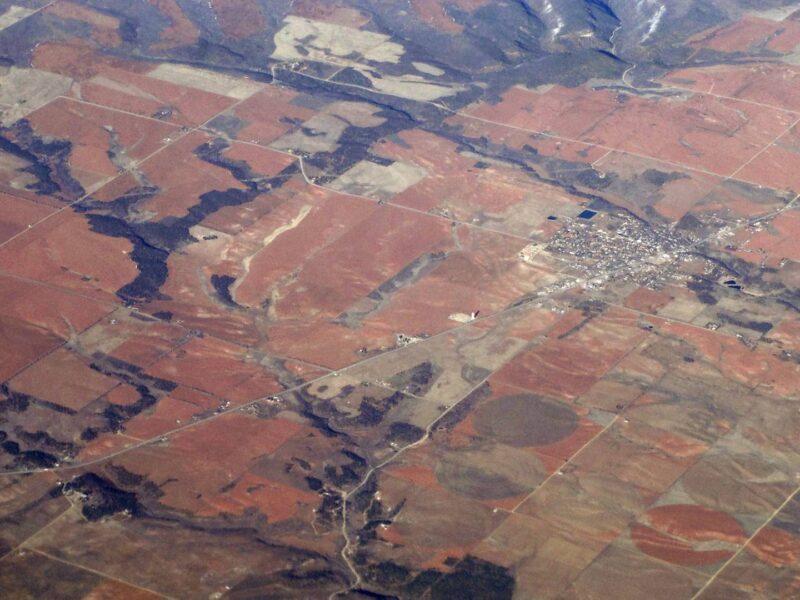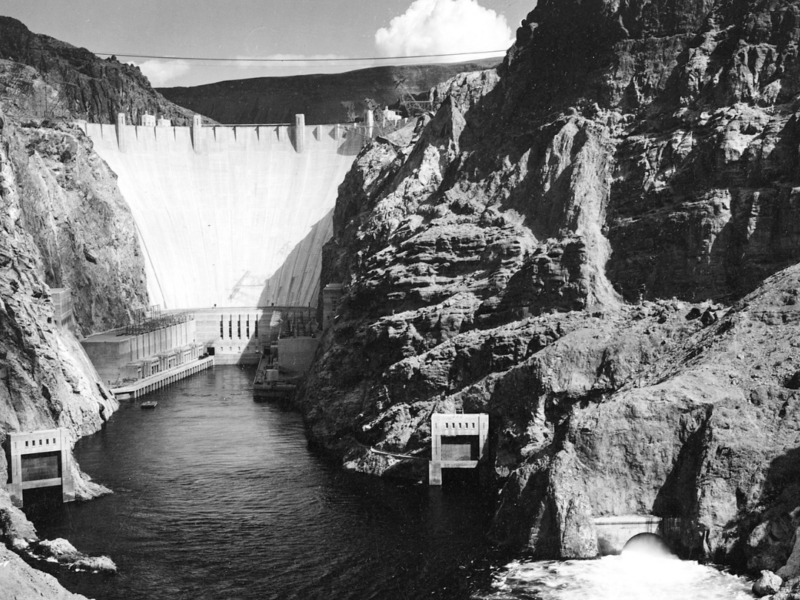Irrigation Efficiencies and Modernization for Agricultural Producers
Irrigators around the West face a multitude of challenges when it comes to using water. The effects of drought, development, and aging infrastructure impact nearly every agricultural community, and finding solutions to these barriers is not an easy fix. Thanks to innovative programs and locally-informed work, these obstacles are being overcome to improve water delivery, reduce operation and maintenance costs, restore fish and wildlife habitat, and build community resilience. To learn more about this work and further explore the topic of irrigation efficiency and modernization, Western Landowners Alliance hosted the Farmers Conservation Alliance (FCA) and the Ute Mountain Ute Farm and Ranch Enterprise for the fourth and final installment of the Winter Water Webinar series.
WLA recognizes that water user perspectives and irrigation methods vary and that other practices like flood irrigation are equally valuable in addressing the needs of lands and irrigators alike. It is also worth noting that while irrigation modernization efforts and irrigation efficiency practices can work for some people and places, these practices do not equate to water conservation.

For more information about the relationship between irrigation efficiency and water conservation, see these resources:
The webinar began with Julie O’Shea, founder and executive director of FCA explaining how, in 2005, the Farmers Irrigation District of Hood River, Oregon, worked with FCA to take an innovative fish screen to market with the understanding that all profits would be invested in ways that serve irrigation and agriculture. Throughout the process of installing these fish screens and working with irrigators, FCA came to the conclusion that our nation’s failing irrigation infrastructure was the most significant barrier to achieving the goal of agricultural resiliency.
Since that time, FCA has worked to build relationships and solutions-oriented approaches in communities across the West as part of its Irrigation Modernization Program. This program, IMP for short, helps water users upgrade infrastructure while simultaneously helping to restore water systems and generate renewable energy. With the help of local partners, FCA helps irrigators overcome the planning, financing, and construction hurdles of modernizing irrigation infrastructure by offering a “one-stop shop” that includes services for initial assessments, strategy development, funding and permitting, and the build phase. Since its creation, the program has helped to secure more than $200 million in project funding for irrigation communities throughout the West.
The southwestern Colorado Ute Mountain Ute Farm and Ranch Enterprise, a partner of FCA and an operation that has taken strides to implement irrigation efficiencies, was represented by Michael Vicenti during the recent WLA webinar. As explained by Vicenti, the farm uses center pivot sprinklers, gravitationally fed by McPhee Reservoir 40 miles away, to grow alfalfa, corn, and wheat across nearly 8,000 acres of farmland. To reduce operational costs and improve irrigation efficiency, the farm has modified its pivot sprinklers to saturate more ground, planted experimental crops like sainfoin and Kernza, and installed micro-hydro plants, which work to power on-farm infrastructure using irrigation water pressure.
The Ute Mountain Ute Farm and Ranch Enterprise is also home to the Bow & Arrow brand, which is an onsite mill that markets the products the farm grows to consumers around the Southwest and to food companies looking for certified non-GMO corn for their foods, including everything from corn chips and tortillas to cornbread and soup mixes to whiskey.




